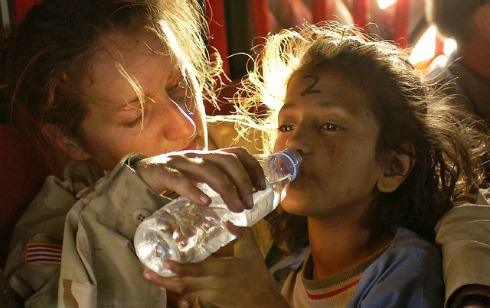 World Humanitarian Day was instituted to remember people who have served in humanitarian missions and especially those who have lost their lives in the course of their service. It is an opportunity to call to mind the people who have gone before us, and especially to honour our martyrs. These include Christians who were killed because of their faith or because they recognised how precious each human being is regardless of race or religion, and dedicated their lives to serve them when they were under threat. They both inspire us and keep us honest.
World Humanitarian Day was instituted to remember people who have served in humanitarian missions and especially those who have lost their lives in the course of their service. It is an opportunity to call to mind the people who have gone before us, and especially to honour our martyrs. These include Christians who were killed because of their faith or because they recognised how precious each human being is regardless of race or religion, and dedicated their lives to serve them when they were under threat. They both inspire us and keep us honest.
It also reminds us how important it is for all community groups, including Jesuit Social Services, our parishes and schools, to remember the people who have inspired us and have shaped our ministries and our way of working. Their stories, including their foibles and the mistakes they made and made up for, show what our we are about. They do so, not in the language of mission statements and corporate speak, but in the messy language of lived lives and relationships.
In any organisation the arteries that keep us energetically alive can easily be hardened, with the result that we live half-lives. We can keep our eyes on the desk, focusing on the ways we have always done things without noticing the changes in the lives and circumstances of the living people whom we serve. It is easy, too, gradually to become discouraged by the difficulty of our work, by the lack of recognition we receive, by the toxic attitudes we see in society and by the daily losses we take in our personal lives.
In any organisation, too, we can focus on the logistics of what we do – the finances, the delivery systems, the compliance protocols, the correct procedures and so on - and lose sight of the faces of the people whom we serve. The processes are important, but they must serve larger goals. In our case the goal is that the people whom we serve live more fully, find respect and are connected with society. What matters most is people. Programs are a means to this end.
The way to keep this goal in mind is habitually to look into the faces of the people with whom and for whom we work, automatically to think of our parish as people, of our hospitals as people and of our schools as people, each of whom has a distinctive face.
That is why we remember the people who have lived out our own mission generously and attractively, the people whose memories make us smile as we go about our daily work. Humanitarian Day is about dusting our own humanity, making it shine and putting a smile on its face.